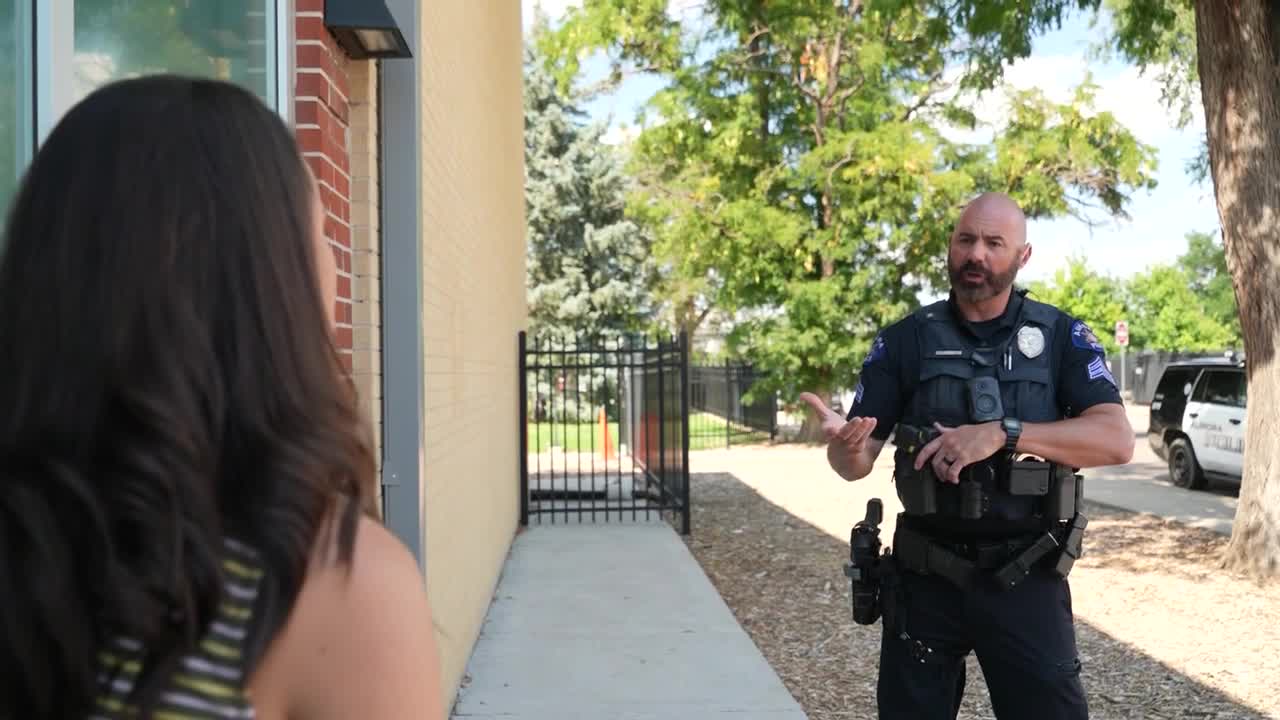AURORA, Colo. — The City of Aurora has taken a "tough love" approach to curbing homelessness, and a new permanent unit within the Aurora Police Department (APD) is dedicated to clearing encampments and enforcing the city's camping ban as part of that initiative.
On Thursday, Denver7 shadowed members of the Homeless Abatement and Relocation Team (HART) to better understand how they work.
"Currently we have a camping ban in the City of Aurora — basically makes it illegal to camp, set up a shelter, on any public or private property. That's typically the reason we're contacting them," APD Sgt. Joshua Perrott said. "A lot of the times, like I said, we're not out there to just upset people's lives. We understand that homelessness is a problem and sometimes it's out of your control, right?"
Prior to HART, Perrott said their Police Area Representatives (PAR) Teams were in charge of abatements.
"Seeing the need to expand the units and take some of that burden off of them [PAR], they went ahead and created the HART unit, which originally started with only four officers," Perrott explained. "Now, we have six officers and one supervisor."

Currently, the HART Unit operates out of District 1 and serves the entire city.
"We do have a mandate from the city and from the state to obviously prosecute and charge people who are committing crimes," Perrott said. "But we do try to offer resources. We do work in conjunction with the city, and like I said before, if it's the first time we've ever contacted that person, it's going to be a warning... But obviously, if we're contacting them over and over and over again, we have to have some type of repercussion for that, and that's where the charging comes in."

The HART Unit made more than 600 contacts between October of 2024 and July of 2025, according to data provided by APD.
"We've really been making a lot of headway. We've been identifying a lot of issues, been handing out resources to a lot of people," Perrott said.
Two of the HART Unit's officers are currently in critical incident training, Perrott said, and the remaining four officers have already completed that training.
"We understand that a lot of the people in the homeless population do have some mental health issues, so having a critical incident training certification and being able to talk and deal with people with mental illness is a huge," Perrott said.

Two of the members of the HART Unit are APD Officers Esme Benhadou and Rich McDonald, who showed Denver7 two different locations they frequently visit as part of their enforcement.
At the first stop, a woman was inside of a storm drain when the officers arrived. She was cited for a petty offense.
"I shined my flashlight, which is really bright, right there on her hand, she's not even noticing, because she's too into doing her drugs," McDonald said. "We've been here before and had, you know, people just take off running from us."
The encampment had several shopping carts filled with belongings, along with items scattered throughout the storm drains. It was right next to an apartment complex, with families walking nearby.

"That's exactly why we do what we're doing, because no child should be in this close proximity of fentanyl or of anything like that," Benhadou said.
Next, the unit drove to Parker Road and Interstate 225, an area they patrol periodically.
"We receive a lot of complaints from trail users and people, cyclists. It used to be tent next to a tent next to a tent,"Benhadou said. "I believe we had great results. So far, lot of praise from the community. I mean, so far, this has been the most effective we've ever been."
While at this stop, officers encountered a 61-year-old man named Ian Pendleton who was living on the streets. Pendleton was not cited for any crime, as he appeared to be passing through the area instead of camping.
"Well, I started out on the streets. I've been on my own since I was six, pretty much," Pendleton told Denver7. "There's quite a bit of resources, but I just haven't decided where I wanted to stay."
Pendleton did not appear upset by his interaction with law enforcement. He said he understood they were doing their job. Pendleton left the area, adding that he would not be leaving Aurora as he considers the city his home.

Aurora Mayor Mike Coffman sent Denver7 a statement in response to the HART Unit.
“We are not helping anyone by allowing them to stay on the streets," Coffman said. "They need to know that encampments are unacceptable and we have services, job training, and employment opportunities to help them get back on their feet.”
In addition, Coffman posted on social media on Thursday, explaining that capacity at their overnight shelter on the Anschutz Medical Campus will increase once the Aurora Regional Navigation Center opens on November 17.






